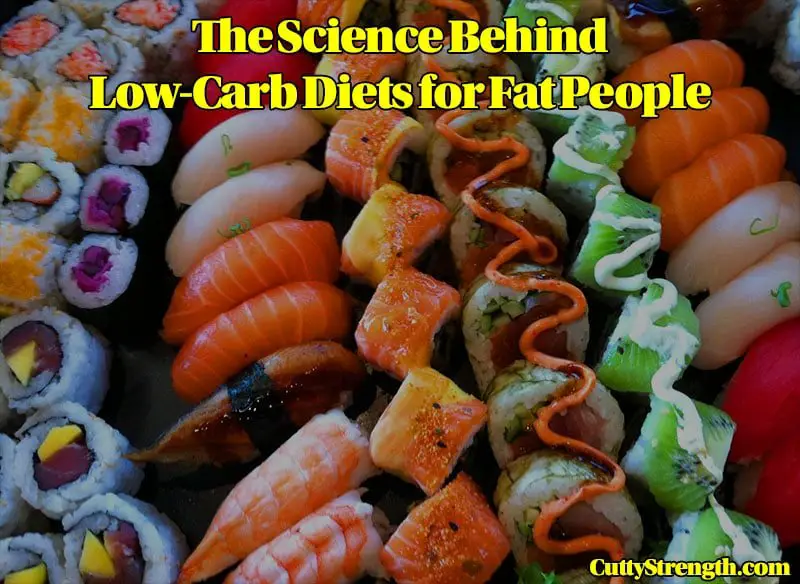This is a guest post from Elliot Reimers
Are low-carb diets best for overweight individuals looking to lose fat?
Probably the first thing people ask when they start out on a fat-loss program is should they go “no-carb”.
Somewhat recently, various “health experts” have proclaimed that sugar itself is “toxic”, and “an addictive drug“. These individuals tend to believe that foods high in sugar content wreak havoc on the body’s hunger-regulating mechanisms.
To keep this rebuttal to such claims concise, I would advise individuals to first and foremost emphasize calorie control while maintaining a balance of proteins, carbs and fats. At the end of the day, weight loss will come from burning more calories than you’re consuming; manipulating macronutrients is sort of the next level to propelling weight loss.
It’s impossible to provide a one-size-fits-all diet for everyone, so the best advice I can offer in this regard is to simply use trial and error and see what works for you.
An example would be to try a few weeks eating a diet of say 40% protein, 40% carbs and 20% fats while keeping calories in a sufficient deficit to lose weight. If you find you’re not losing at the rate you would hope, than try backing off the carbs a bit and increasing fats and/or proteins. Experiment, try new things, and listen to your body.
Sugar isn’t the problem, eating too much is
Carbohydrates are probably the most misunderstood and vilified macronutrient.
Given the complexity of metabolism and environmental factors that vary from one individual to the next, it is imperative that people realize what works for one individual may or may not work for themselves.
This just in: sugar doesn’t make you fat
Carbs get a bad rap because many people have a diet composed largely of simple sugars while concurrently remaining highly sedentary. Essentially, they are constantly spiking blood glucose and not using the energy for anything, so it ends up being stored and eventually converted to adipose tissue.
This eventually manifests itself into type-II diabetes due to impaired insulin sensitivity from all the blood glucose fluctuation.
Intuitively, people figure they will just cut back (or practically eliminate) carbs altogether and all will be fine. My argument would be that carbs shouldn’t necessarily be eradicated from your diet, but just controlled (like any other macronutrient).
Research does indicate that overweight individuals are susceptible to impaired insulin response which means too many carbs can be an issue. The trick is to keep carbs as high as possible while simultaneously achieving sufficient weight/fat loss.
Balance your intake
The insulinogenic activity that simple sugars induce can be greatly altered when you combine them with other food sources. Therefore, I see little harm in eating simple sugars so long as you ingest other nutrient/foods that tame the glycemic load of the meal (like fiber, complex carbohydrates, unsaturated fats, leafy vegetables, etc.).
This isn’t to say your sole source of carbohydrates should be pure dextrose, but just iterates the point that some sugar is fine and won’t in and of itself magically make you gain weight.
For many individuals, it just won’t remain a practical long-term lifestyle to avoid carbohydrates, and by keeping them at a level to support energy and mood (among a host of other benefits) while maintaining a weight/fat loss regimen will only be a positive factor.
Don’t fear carbs (or any macronutrient for that matter), just use your head and be pragmatic about it; if you’re sitting at a desk all day and driving to work, then you probably should eat fewer carbs then someone who is active and on their feet all day.
